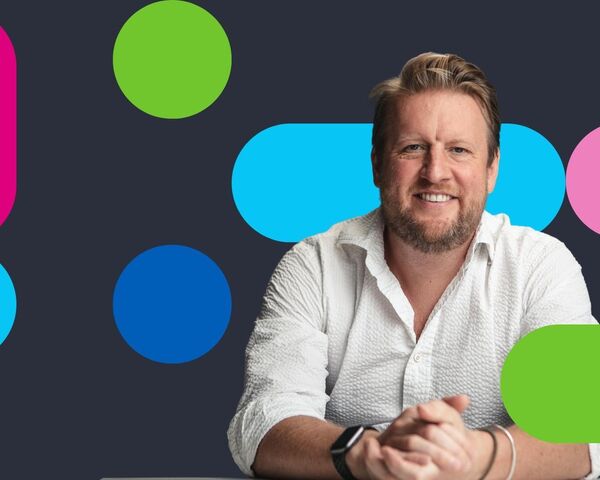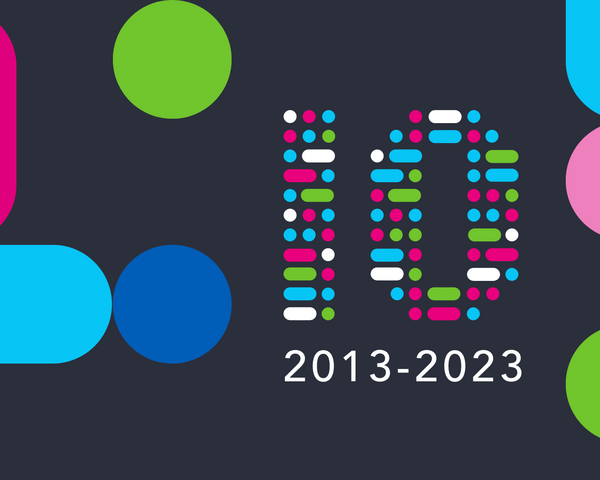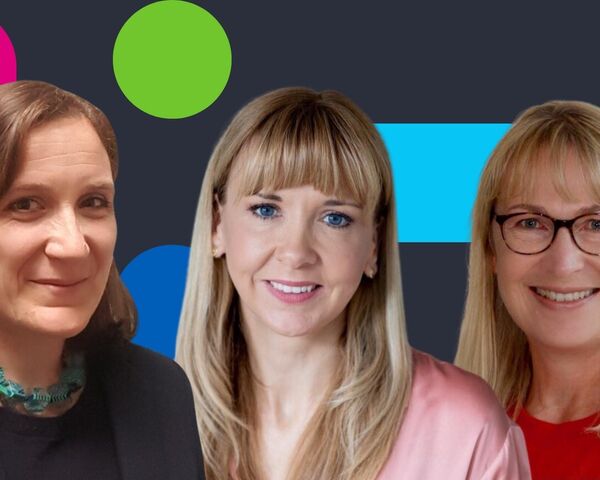Genetic counselling at the heart of genomic healthcare
By Amanda Pichini on
This year we celebrate a decade of Genomics England, including the achievements we have made, challenges we have overcome and opportunities for the future.
I’ve been with Genomics England for nearly 2 years, as Clinical Lead for Genetic Counselling. Marking this milestone is also an opportunity to reflect on my experience, the important role that genetic counsellors have played in genomic health care and my hopes for the next 10 years.
Genetic counselling: Past and present
Genetic counselling helps people understand and adapt to the impact of genetics and genomics on their health – including medical, psychological and family implications.
Since genetic counselling services started in the UK and USA in the 1940s, the profession has changed, matured and advanced rapidly. The first genetic counselling clinic in Europe opened at Great Ormond Street Hospital, London, in 1946 – 2 years before the start of the NHS, and 7 years before the discovery of the structure of DNA.
Initially, testing a single gene – let alone sequencing the whole genome! – was not widely available. Instead, information about someone’s family and health history was used to suggest possible diagnoses and inform reproductive decisions.
Over time, the NHS has been able to offer an ever-increasing number of genetic and genomic tests. This greater amount of information gave some families more answers, like finding the underlying cause for their condition.
But more information can also lead to more questions, or different types of uncertainty. This has pushed genetic counsellors to constantly reflect on and adapt our practice, to meet the needs of patients in light of these new technologies.
There are now about 300 registered genetic counsellors working in the UK, represented by the Association of Genetic Nurses and Counsellors. The UK is scaling up the number of genetic counsellors through different routes to registration, but there is still a lack of resource to meet the significantly growing demand.
Being part of the genomic revolution
When I first heard about genetic counselling, I was excited about the potential to work at the intersection of science, ethics and communication – while supporting and empowering patients to navigate through challenging situations.
When the 100,000 Genomes Project started in 2013, I was working clinically as a genetic counsellor in an NHS Clinical Genetics Service in Bristol, and supporting the recruitment of families to the Deciphering Developmental Disorders (DDD) project.
I joined our regional team to deliver the 100,000 Genomes Project in the west of England, setting up pathways to enable recruitment of patients with rare diseases and cancers; meeting families to discuss their decision to join the Project; and training other healthcare professionals to facilitate consent and return results in an informed and sensitive way.
I’m hugely grateful to have been able to support our participants through the Project. For some families, their results have been life-changing. Many continue to wait for an answer to the underlying cause of their condition, with hope that ongoing research can help their family and others.
We learned a lot about what the experience of the Project was like for families and for the NHS. Importantly, how to provide realistic expectations about what genome sequencing can tell us, what it can’t, and what we are still learning.
While no longer in an NHS patient-facing role, I bring my clinical expertise and skills as a genetic counsellor to Genomics England’s services and programmes.
This includes supporting processes like our approach to consent; addressing clinical, scientific and ethical challenges raised by our work; and engaging with a range of audiences including our participants, the public, policymakers and healthcare professionals.
My experience working in the NHS allows me to appreciate the impact our work has on the health system, and the importance of working with the NHS to ensure we can implement and evaluate our services safely and effectively.
This role has been a part of Genomics England from nearly its beginning – a testament to how much it values the skills and experience that genetic counsellors bring to advancing genomic health care.
Where are we now? The Newborn Genomes Programme
As we continue to learn more about the role of genomics in rare conditions and cancers, we have a pivotal opportunity to research the potential of genomics to identify conditions even before they present.
Genomics England’s Newborn Genomes Programme will involve a research study embedded in, and run in partnership with, the NHS. It aims to explore the possibilities of genome sequencing in newborns to identify a wider range of rare genetic conditions that could be treated in early childhood, and contribute to research about genomics and health.
We have been engaging with parents, people with experience of a rare condition, healthcare professionals, researchers and members of the public to explore the ethical, scientific and practical questions raised by this programme. Importantly, we must ensure that parents are provided with accessible information and guidance to decide whether to take part, and that support including genetic counselling is available to families after receiving a result.
We’ve been able to draw on our experience with the 100,000 Genomes Project and NHS Genomic Medicine Service, as well as other initiatives, to consider how best to deliver this study and gather crucial evidence to inform future decisions.
Evolving the profession in the era of genomic medicine
Genomics is becoming part of routine clinical care and research at an unstoppable rate. This provides vital space for the genetic counselling profession to grow and explore opportunities at the novel and complex end of genomics.
A wide range of healthcare professionals are taking on responsibilities to facilitate consent to genomic testing or communicate genomic results, requiring education and training. Digital tools are increasingly available to give information in innovative ways. Targeted treatments and gene therapies have the potential to dramatically change the experiences of people living with rare conditions or cancer. And using genomics to predict health risks can help people to be proactive, as well as create uncertainties for the future.
It’s important that genetic counsellors continue to work closely with their nursing, midwifery, medical, scientist and other professional colleagues to navigate these changes.
New technologies bring ethical issues that can’t be ignored – whether and how they should be used, how they can be equitably accessed – the answers are never straightforward. And the ‘counselling’ element of the role remains integral to addressing the emotional and psychological impacts of genomics.
Genomics cannot exist as a technology in isolation. To truly have an impact on health or promote behaviour change, input from skilled healthcare professionals like genetic counsellors is essential.
Looking ahead…
The next 10 years will continue to bring exciting challenges and opportunities as we consider how to use genomics effectively for the benefit of patients, research participants, researchers, and health care systems.
As we look forward, Genomics England is in a prime position to work with others and continue to change the genomics landscape.
About the author
Amanda Pichini is Clinical Lead for Genetic Counselling at Genomics England. She provides clinical expertise and leadership across several teams and services, particularly with the Newborn Genomes Programme.
Amanda received her Master of Science in Genetic Counselling from the University of Toronto, and previously worked in Toronto and Bristol providing clinical genetic counselling to patients and families with a wide range of conditions.
She was involved in delivering the 100,000 Genomes Project and led the development of pathways to mainstream genomic tests into a variety of specialties. Amanda has also published a number of competency frameworks and resources, providing support to healthcare professionals to facilitate genomic tests and deliver family-centred care.
Learn more about genetic counselling in this blog post or by listening to this podcast (featuring Amanda).


